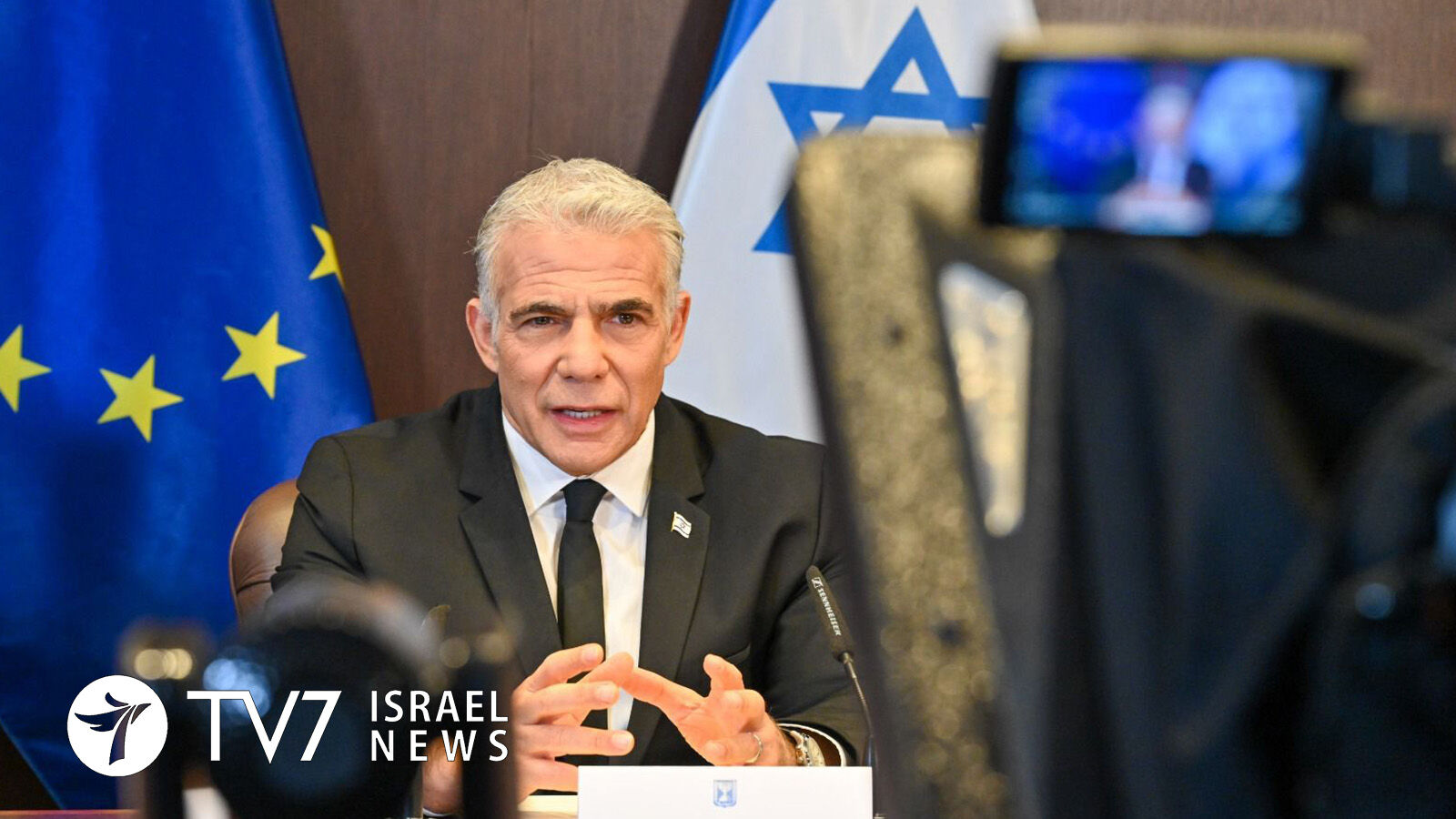Israeli Prime Minister Yair Lapid led the first meeting of the European Union-Israel Association Council held in over a decade.
By Erin Viner
EU High Representative for Foreign Affairs and Security Policy Josep Borrell and the foreign ministers of additional countries participated in the meeting.
Intelligence Minister Elazar Stern, who represented the Government of Israel in Brussels, led the Israeli delegation in the diplomatic discussions.
The leaders reviewed Israel-EU relations, discussed cooperation and the further bolstering of relations.
“The convening of the Council, for the first time since 2012, is a significant diplomatic achievement that reflects the improvement in Israel’s relations with the EU over the past year. The Council is the highest forum steering Israel-EU relations and deals with the full range of these ties, including in science, the economy, energy and the environment,” said an Israeli governmental statement, adding that the convening of the Association Council will enable ongoing development of ties with the EU “for the benefit of the citizens of Israel.”
PM Lapid’s full remarks at the start of the EU-Israel Association Council meeting:
High Representative Borrell, Colleagues,
Let me begin by apologizing that I can not be with you in person in Brussels. Nobody wanted to be there more than me. But we’re less than a month away from elections here in Israel, and given the complex security situation here at home, I had no choice but to join you virtually.
Over a year ago, when we formed the new government in Israel, I set several foreign policy goals. One of the most important was improving our political and economic ties with the European Union.
The EU is Israel’s main trading partner, but we share more than just economic interests: we share liberal and democratic values. These values are under attack, and we must stand firm against this attack, together. We are all united in our desire to stop Iran from obtaining a nuclear weapon.
This is a regime that is murdering its citizens even as we speak. The world must not be silent. Even though we disagree on the JCPOA, we all agree that everything must be done to prevent Iran from becoming a nuclear state.
We are all united in our desire for the war in Ukraine to end. And in our desire for the restoration of its territorial integrity. We all understand that we must stand up and defend freedom of expression, freedom of religion and freedom of the press around the world.
And we are all committed to fighting discrimination. Anti-Semitism is on the rise again in Europe. We welcome the EU strategy to combat it and now have to put that plan into action.
Friends, there are positive changes taking place around the world; and for a change, some of them are happening here in the Middle East. The Abraham Accords and Negev Forum are changing the region. Through the Negev Forum, we signed agreements and established working groups on technology, food security, energy, water, education and infrastructure. The EU can and should be a part of this.
Over the past year, there has also been a positive change in our work with the Palestinian Authority. We are working with them and helping their economy develop. In my speech at the UN General Assembly, I expressed once more my commitment to the Two-State Solution.
But the Palestinians need to put an end to terrorism and incitement. Israel wants peace that will lead to security, not peace that will destabilize the Middle East. In our meeting of Foreign Ministers last July, we began the dialogue that brought us to this moment.
At the time, no one imagined that there would be a war in Europe. No one foresaw the energy crisis that followed. More than ever, we need to cooperate with like-minded countries.
We need new technologies to maximize the capabilities of the countries represented in this forum. We will bring to the table plans, research cooperation, technological collaboration, trade, energy and more.
The first goal I set with High Representative Borrell, Commissioner Várhelyi, and with all the foreign ministers, was reconvening the Association Council. This is the forum that will allow us to advance economic ties between Israel and the EU and strengthen our fight to lower the cost of living, in both Israel and Europe. This Council has not convened in over a decade — for the wrong reasons. The fact that we are convening it now corrects an historic mistake.
It is an important milestone in our improving relations. This past year has seen some vast progress in our ties — and there is still so much more that we can do. In December, we joined the Horizon Europe program, which will continue through 2027. In June, we signed a trilateral MoU with Egypt on energy cooperation. We are set to sign an agreement with Europol, and I hope we will conclude the signing of Creative Europe soon. We hope that now the path will be paved for Israel’s participation in other European programs: Digital Europe, Invest-EU, EU4HEALTH and more.
I look forward to our discussions today, and to a better future for Israel-EU relations.
Thank you.
